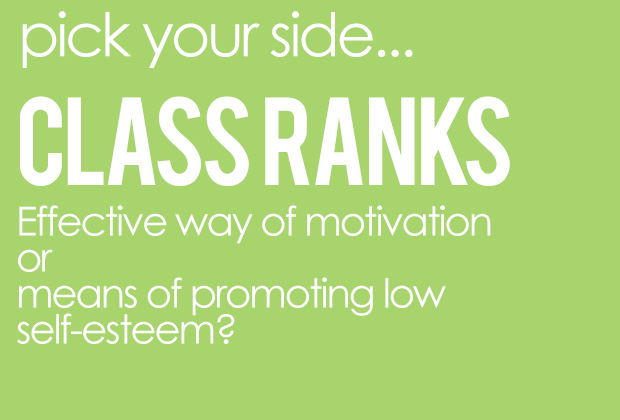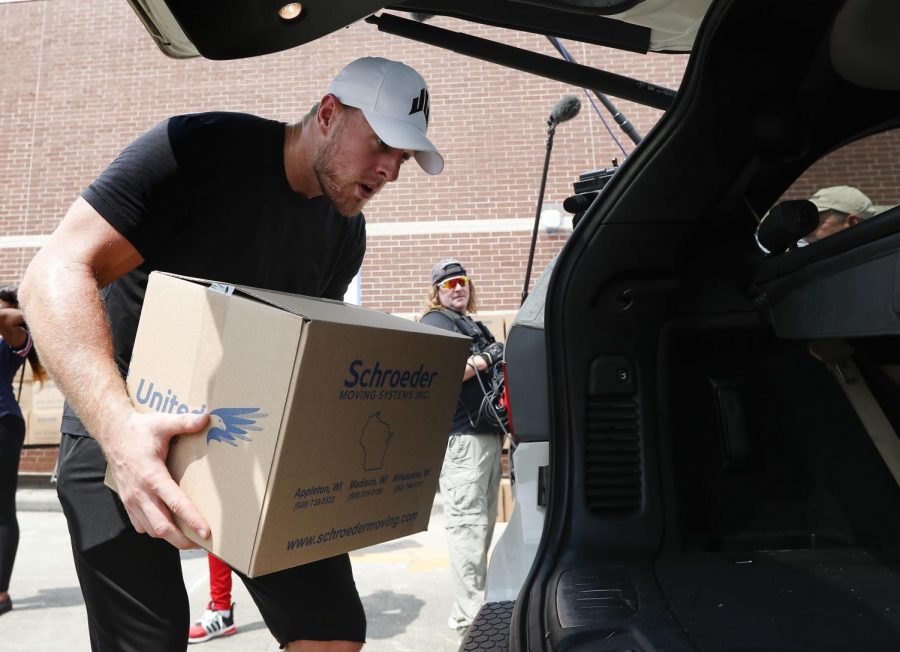Eighty-five percent of high schools utilize the class rank system, according to National Association for College Admissions Counseling. However, while there are those that argue ranks offer a motivational system of organizing success, there are also those opposed to the stress and lack of individualism they promote.
FOR – Michele Higgins
Ranks allow students to gauge their own successes, inspire students to work harder, and enable colleges to effectively evaluate students.
When I received my rank, I saw how I compared to other students. Knowing ranks enables students to gauge their success and set future goals. Even though a GPA means something to a college and to a counselor, rankings helped me better understand my GPA and what it means. Without ranks, GPA is just a number to a student. With ranks, students can see their current GPA and the GPA they should aim to have.
Whether they are pleased with their rank or not, ranks inspire students to push themselves either to maintain their rank or improve it. Anytime I felt like slacking off, I remembered my rank and was forced to work harder. Knowing their rank also provides students with the necessary information to analyze their grades. Whenever I received a grade, I thought back to my GPA and rank to help decide if I was working hard enough to maintain my rank.
Although colleges use GPA as a way to gauge high school success, ranks help colleges not only see how students succeed in school but also see how they strive for excellence within a community. A student with a high ranking shows that they both work hard to achieve academic excellence as well as strive to be above average. Colleges clearly understand how rank portrays personal drive as shown by Texas’ automatic acceptance for all top 10 percent students to any public school.
While ranks can cause stress among students, it is a direct result of their importance. Students know that rankings evaluate their success so they stress about them. This stress is effective to inspire students to strive for higher goals. Countless students move up throughout the years from their original ranking because their original rank encouraged them to improve. Throughout my experience with ranks, I have found that ranks allow students to gauge their own successes, inspire students to work harder, and enable colleges with another effective way to evaluate students.
AGAINST – Sanah Jivani
According to the National Association for College Admission Counseling, 46 percent of schools in the United States use the class ranking system, ranking students by their grade point average. When high school starts, the pressure begins. Students begin worrying about their class rank as early as freshman year. Class ranks bring negative aspects such as low self-esteem and poor effects on education. Although class ranks measure GPA, they certainly do not measure potential.
After graduating with a rank they do not desire, students feel all the work put into their four years of high school ultimately amounted to nothing. The struggle for a high GPA does not measure the potential of a person. Comparing students to their peers will not measure their intelligence. Along with this, students often do not realize that potential can also be determined by aspects such as personality, artistic ability and many other factors that class ranks do not measure.
Often, students feel upset about not graduating in the top 10 percent of their class. Students put endless amounts of work in, but still do not come out with the rank they desire. Their new rank begins to “define” them. The class rank system causes students to believe they are not good enough or will not be able to do what they dream.
Aside from the emotional effects, effects in education also exist. The pressure of getting the desired GPA can cause some to worry more about grades than learning. Some students play the GPA game, taking classes that they normally would not, just to get a higher grade. In extreme situations, the pressure gets so high that students feel they need to cheat their way to the top. All of this added pressure has a negative effect on students.
Class ranks have an impact on students that are extremely hurtful. Students’ main concern at school should be learning, not the rank they are going to graduate with. Some may argue that class ranks motivate students to work harder, but students should work hard for education and personal success. Ranking students by GPA is an unfair determination of potential and success. With the vast amount of negative effects, class ranks are only hurting students.















